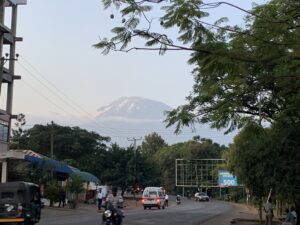
Photo: Mount Kilimanjaro (own picture)
Author: Melanie Schwarzfischer
The concept of resilience is widely used and applied in many different disciplines ranging from natural sciences to social sciences. In broad terms, the concept of resilience describes “the capacity of ecosystems, individuals, organizations or materials to cope with disruption and stress and retain or subsequently regain functional capacity and form” (Hudson 2010: 2). The concept of resilience has been applied in tourism studies since the number of crises affecting the tourism industry has been rising dramatically over the past years. Due to the globalized nature of tourism, the dependence on tourist flows and the reliance on the tourists’ safety, the tourism sector is very vulnerable to crises (Jiang et al. 2019: 882 ff.). To improve the sustainability of tourism management and the ability to cope with uncertainties, the concept of resilience can be utilized.
The tourism landscape in Tanzania is quite diverse, ranging from wildlife safaris, mountain and trekking activities to community tourism and beach tourism (Mauly Tours 2022). But all in all, the tourism industry is highly dependent on the natural capital of the regions and the maintenance of national parks in Tanzania.
Read more: Resilience
